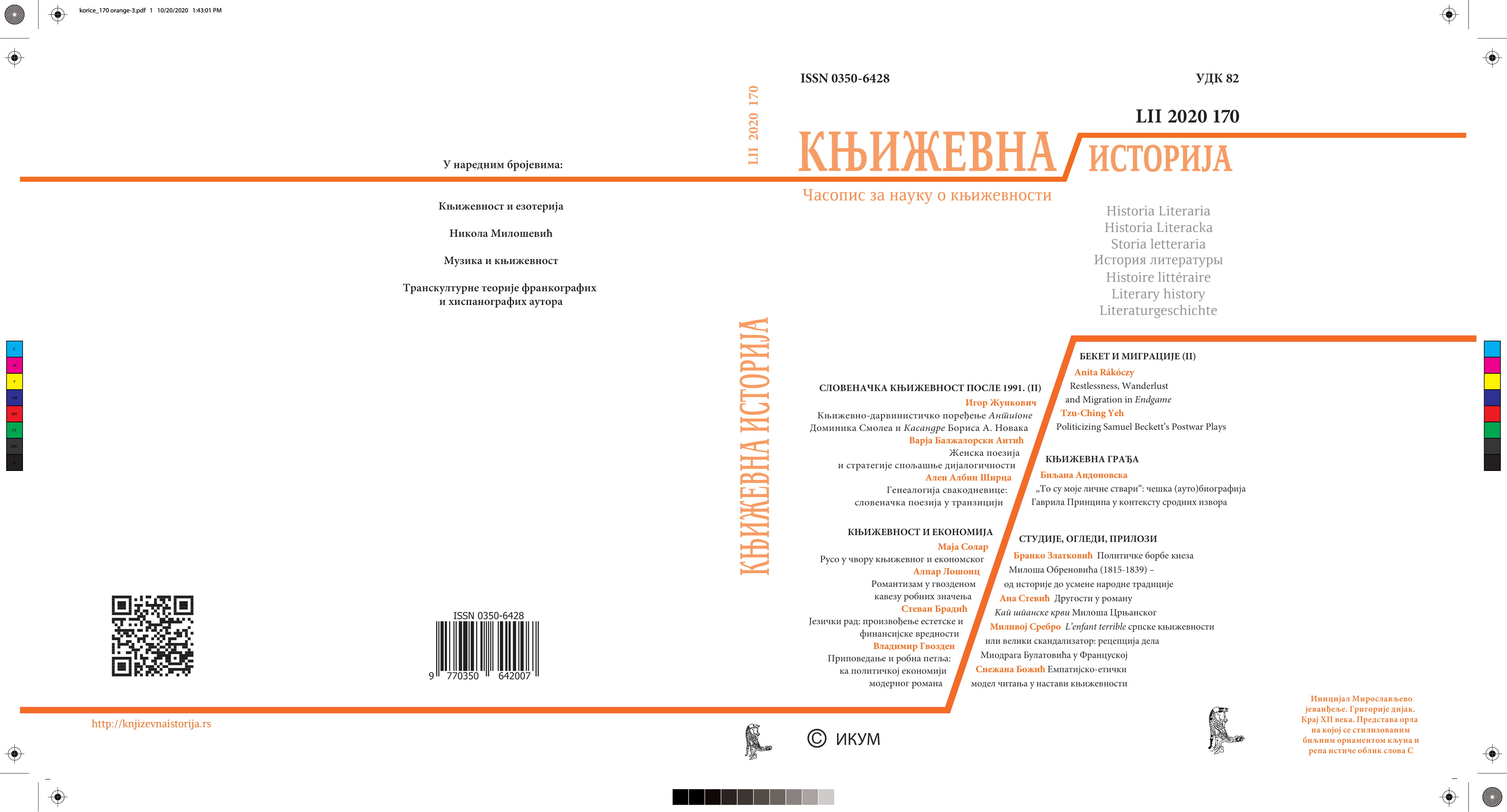Приповедање и робна петља: ка политичкој економији модерног романа
The Narrative and the Commodity Loop: Towards a Political Economy of the Modern Novel
Author(s): Vladimir GvozdenSubject(s): Serbian Literature, Socio-Economic Research
Published by: Институт за књижевност и уметност
Keywords: literature;capitalism;aesthetics;commodity;subjectivity;modernity;creativity;productivity;Romanticism;Modernism;
Summary/Abstract: This paper attempts to analyze how the elements of the commodity loops enter the genre of the novel. The change which occurred in last decades of the 19th century required a particular space and new “types” of people with an embedded concept of consumption as an extraordinary sensual experience. At the same time, there also appeared the transgressive social types: the first department stores “created” kleptomaniacs, the growing possibility of traveling produced a new illness of “crazy travelers”, and the figures of the dandy and flaneur described new types of bourgeois subjectivity that would soon become widespread. The aim of the paper is not to demonstrate a mere application of the economy on literature, but to show how the looping effects of commodities enter the network of novels and how the novel tries to re-shape that same loop. This approach involves an analysis of the well-known novelistic thematizations of the turbulent world of goods, formal innovations related to the treatment of commodity values, as well as the different types of people created by the commodity loop. The political economy of the novel, interested in mixing points, moments of collapsing or demolishing pure categories, shows that the logic of the art of novel should not be characterized by a strict separation between the pathos of material life and the purity of artistic signifying practices. It aims to erase a solid line that separates the autonomous and heteronomous art. Therefore, at best, we remain at Lukács’ idea of aesthetic forms as structured reactions to social contradictions. The sharp division between economy and literature misses both economy and literature because it hides behind the belief in the easy separation of art from social hierarchies. Literature can strive to prove “the separation of economic behavior from the social context”, but then it must take into account that its own separation cannot be founded without that same context. However, observed from the perspective of economic literary criticism, it seems that the modern novel gradually and self-consciously abandons prejudices about the different surfaces of inscriptions of human activity and contemplates how to examine the boundaries of the commodity and to conceive the space that goes beyond the workings of the commodity loop.
Journal: Књижевна историја
- Issue Year: 52/2020
- Issue No: 170
- Page Range: 179-206
- Page Count: 28
- Language: Serbian

